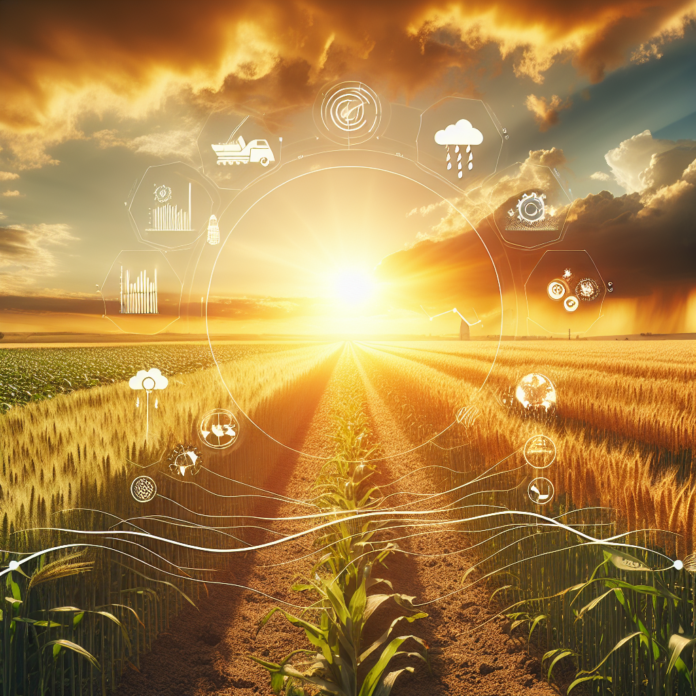Future of Agriculture in a Changing Climate
Future of Agriculture Amid Climate Change
As climate change continues to reshape the global landscape, the future of agriculture is becoming increasingly uncertain. Rising temperatures, unpredictable weather patterns, and extreme weather events pose significant challenges to food production systems worldwide. Farmers and agricultural experts are faced with the daunting task of adapting to these changes in order to ensure food security and sustainability.
Impact of Climate Change on Crop Production
One of the most immediate effects of climate change is its impact on crop yields. Higher temperatures can lead to reduced agricultural productivity, as many staple crops, such as wheat, rice, and maize, have optimal growing conditions that could be severely disrupted. Additionally, altered rainfall patterns can result in droughts or floods, both of which can devastate crops.
In response, agricultural scientists are exploring innovative solutions, including the development of climate-resilient crop varieties that can withstand extreme weather conditions and pests. Techniques such as genetic modification, selective breeding, and agroecological practices are being employed to enhance crop resilience.
Sustainable Farming Practices
To combat the challenges posed by climate change, there is a growing emphasis on sustainable farming practices. These methods focus on maintaining soil health, conserving water, and reducing carbon emissions. Practices such as crop rotation, cover cropping, and reduced tillage can improve soil fertility and resilience, while precision agriculture technologies enable farmers to optimize resource use.
Furthermore, agroforestry—integrating trees and shrubs into agricultural landscapes—can enhance biodiversity, improve soil quality, and sequester carbon, making farms more resilient to climate fluctuations.
Technological Innovations in Agriculture
The future of agriculture is also being shaped by technological advancements. Precision farming technologies, including drones, sensors, and artificial intelligence, allow farmers to monitor crop health in real-time and make data-driven decisions. This can lead to more efficient resource use and reduced environmental impact.
Additionally, advancements in vertical farming and hydroponics offer promising alternatives to traditional farming methods, particularly in urban areas where space is limited. These methods can reduce the carbon footprint associated with transporting food and provide fresh produce year-round.
Global Collaboration and Policy Changes
Addressing the impacts of climate change on agriculture requires global collaboration and comprehensive policy frameworks. Governments, NGOs, and the private sector must work together to promote sustainable agricultural practices and invest in research and development.
International agreements, such as the Paris Agreement, highlight the importance of reducing greenhouse gas emissions and adapting agricultural systems to climate impacts. Policymakers must prioritize funding for climate-smart agriculture initiatives and support farmers in adopting sustainable practices.
Conclusion
The future of agriculture in the face of climate change presents both challenges and opportunities. By embracing innovation, sustainable practices, and collaborative efforts, the agricultural sector can adapt to changing conditions and ensure food security for future generations. It is imperative that all stakeholders work together to create resilient food systems that can withstand the impacts of a warming planet.
